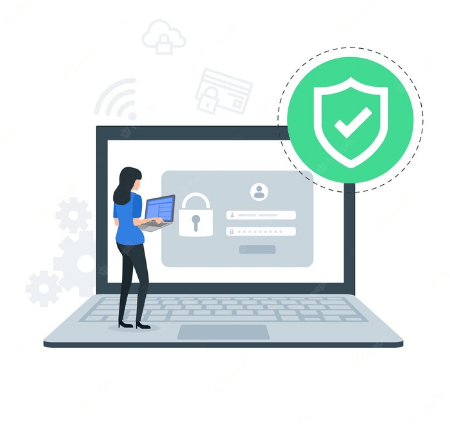Your brand’s reputation is a priceless asset in the age of the internet, where data is readily accessible and public opinion carries immense weight and is very influential. Social media, having its ability to spread information and conversations like wildfire, plays an important role in influencing how society sees things.
In these times if you are a business owner and you are wondering how can you protect your brand’s reputation? Well, don’t worry in this article we’ll be highlighting all the important tricks and strategies on how to use social media as a defense to preserve and improve the reputation of your company.
The Significance of Brand Reputation
It’s important to understand the importance of your brand’s reputation before we dive into the strategies:

Customer Trust: Customers are more likely to pick your brand over rivals when you have an excellent reputation.
Customer Loyalty: A good reputation helps you build customer loyalty, which results in your brand getting into recommendations and repeated purchases with the customers.
Crisis Resilience: A solid reputation can serve as a barrier during crises, protecting your brand and allowing it to survive the storm of crisis and return stronger.
Competitive Advantage: In a jam-packed market, standing out with a great reputation encourages people to choose your products or services over others.
1. Pay Attention
The foundation of reputation management is active listening:

- Keep an eye out for brand mentions, comments, and direct messages on social media networks.
- Use social listening techniques to keep tabs on audience attitude, industry
trends, and new challenges.
- Participate in conversations actively to quickly resolve questions complaints, and criticism.
- You can identify potential challenges early and take the necessary action by listening carefully.
2. Build a Strong Online Presence
A solid basis for managing a reputation can be found in building a strong online presence:
- Keep your profiles on the major social media sites active and up to date.
- Showcase the values, goals, and dedication to the customer satisfaction of your brand.
- Share interesting and important stuff with your audience regularly.
- Your brand’s authenticity and trustworthiness are strengthened by having an active and effective internet presence.
3. Create an Emergency Crisis Strategy
Planning is the key to effectively managing reputation crises:

- Make a thorough report on the crisis and build a response strategy that outlines roles, duties, and methods for interaction.
- To make sure your staff is ready to deal with emergencies, conduct regular stress simulations.
- When handling crises, embrace transparency and acceptance while notifying people.
- Having a strategy in place helps minimize the effects of problems and helps your brand’s speedy recovery.
4. Encourage Genuine Engagement
Trust and loyalty are promoted by genuine engagement:

- Genuinely and quickly respond to all comments, questions, and interactions.
- Encourage respectful discussion even when you are the target of criticism.
- Thank them for their positive comments and address their issues with empathy.
- The relationship between your brand and its audience is strengthened by genuine and active participation.
5. Tell Your Brand’s Story through Social Media
An effective method for shaping your brand’s image is storytelling:
- Share your brand’s journey, values, and achievements through compelling stories. Sharing your stories will help you build authenticity which eventually will help you build your brand’s reputation.
- Share success stories and positive experiences for customers.
- Show that you have committed yourself to responsible behavior and social responsibility.
- By sharing your brand’s story, you can humanize your company and build ties and connections with customers.
6. Protect Customer Data
The reputation of your brand can be badly harmed by breaches of security. Protect customer data by putting in place strong security measures. These cyber-attacks can result in data leaks of your audience which can cause trust issues and drastically affect your reputation.

Invest in cybersecurity measures to protect and preserve your customer data. For the safety of your audience, express your commitment to protecting their information.
7. Make Use of Tools for Managing Online Reputation
Increasing online reputation streamlines the process itself:
- Invest in software that monitors online reviews, analysis of feedback, and brand mentions.
- Assess feedback from customers across different platforms and take the proper action.
- To improve your reputation you can use management initiatives, use data-driven insights.
- These tools provide immediate real-time feedback and useful data.
8. Address Negative Feedback Politely
Negative criticism is inevitable, but how you respond to it is extremely important:

Be professional and polite in your response to every one of the negative feedback or reviews even if they are false accusations or reviews.
Avoid arguing in front of others; instead, try to resolve the issue privately.
Straightforwardly addressing complaints will show your brand’s dedication to your customer’s happiness.
Dealing with criticism shows your brand’s commitment to continuous improvement.
9. Encourage Employees to Promote Brands
Your employees can be powerful advocates for your brand:
Encourage team members to post positive feedback and brand-related content on their social media profiles.
Give training and provide guidelines to your employees on responsible and inspiring online presence.
Acknowledge and reward your employees who actively promote your brand online.
Support from staff members enhances the reputation and visibility of your brand.
10. Monitor and Improve
Managing one’s reputation is a continuous activity.
Analytics can be used to monitor audience growth, their opinion, and engagement on social media.
Regularly assess the outcomes of your reputation management strategies.
Alter your strategy as you get new data and new information, hence improving your efforts for the best outcomes.
Your handling of reputation will keep striving to be effective and relevant through tracking and adjusting.
Social media works as a guardian for your business’s reputation. You can protect your brand’s reputation by actively listening, building a strong online presence, developing an emergency response plan, encouraging authentic engagement, and storytelling, using online reputation management tools, nicely handling negative feedback, empowering your employees, evaluating results, and altering as necessary.
Always keep in mind that maintaining the reputation of your brand takes careful planning, honesty, and sincerity. Every social media interaction is an opportunity to strengthen your brand’s reputation and create lasting loyalty with your audience. Bear in mind that you can influence views, thoughts, and opinions and make sure that your brand remains a trusted and respected entity on the internet.






